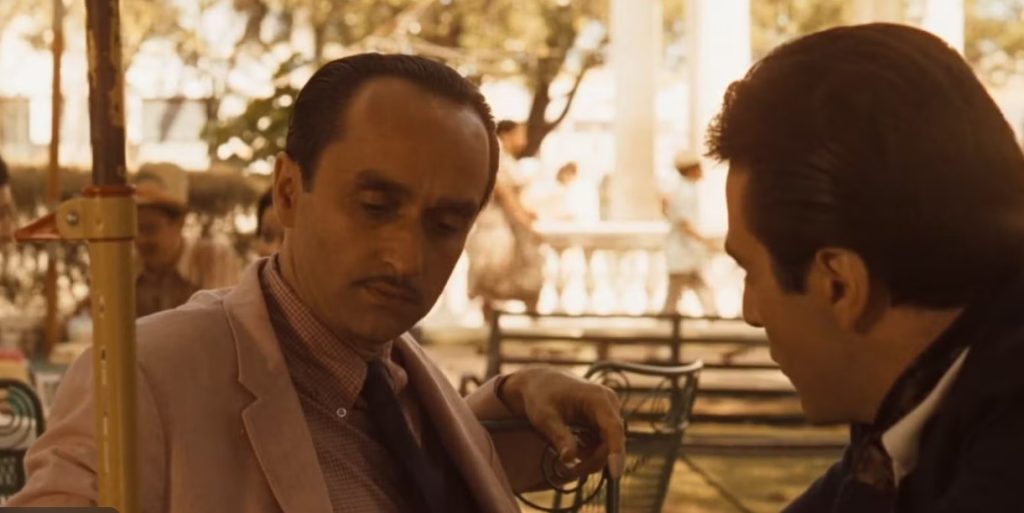
Losing people you love-especially through misunderstandings-can feel like the ground has disappeared beneath you. The ache is real, and so is the fear that “this is how it ends.” One useful mirror is The Godfather saga, which, beneath its crime story, is a study of closeness turning to distance, and love hardening into silence.
In The Godfather (1972), the Corleone family is pulled apart by violence and mistrust. Don Vito Corleone survives an assassination attempt; son Sonny is murdered at a Long Island tollbooth; Michael, hiding in Sicily, loses his wife Apollonia to a car bomb. Each event narrows Michael’s world and teaches him the wrong lesson: protect yourself by shutting others out. By the end, his marriage to Kay is strained, truth is withheld, and decisions are made in rooms where intimacy once lived.
The Godfather Part II (1974) makes the rupture explicit. On New Year’s Eve 1958 in Havana-against the very real backdrop of Fulgencio Batista’s regime collapsing and his flight in the early hours of January 1, 1959-Michael realizes his brother Fredo has betrayed him. He gives Fredo the “kiss of death” and says, “I know it was you.” Later, after their mother’s funeral at Lake Tahoe, Fredo is killed on Michael’s orders. The facts matter here: a misunderstanding might have been repairable; betrayal felt final. But the film also shows how pride, secrecy, and delayed conversations can turn small cracks into irreversible breaks.
What does that teach us about losing people in real life? First, separate misunderstanding from betrayal. Misunderstandings thrive in silence. Before deciding a relationship is over, ask plainly: “This is what I think happened-am I missing something?” Second, don’t outsource hard talks to time. Michael waited; waiting became distance; distance became punishment. One honest conversation, scheduled soon and kept short (“I care about you; I don’t want to guess; can we clear this up?”), often prevents the slide from confusion to contempt.
Name the loss. In the films, no one says, “I’m grieving.” In real life, say it: “I’m scared I’m losing you,” or “I’m grieving what we were.” Naming feelings reduces the power of imagined stories. Set boundaries without vengeance: if trust was broken, you can pause contact, but do it with dignity (“I need a month to heal; then let’s revisit”). If it was truly a misunderstanding, choose repair over being right: summarize their viewpoint to their satisfaction before offering yours.
Rituals help when endings are real. Write a letter you may never send, returning the person to themselves with gratitude for what was good; delete it or file it-your choice. Replace the habit loop: if you texted them every evening, fill that exact slot with a new, nourishing routine (a walk, journaling, calling a supportive friend). Keep your circle small and kind; secrecy isolates, just as it isolated Michael. If you’re carrying heavy grief, consider a counselor-private, practical help accelerates healing.
Finally, choose who you want to become on the other side. Vito often chose de-escalation; Michael often chose control. Both paid prices. When closeness is at risk-by misunderstanding or by the natural ending of a chapter-choose clarity over guessing, compassion over pride, and a clean boundary over a quiet grudge. You can’t keep every relationship, but you can keep your humanity. That, more than power or being “right,” is what makes family-chosen or given-endure.





